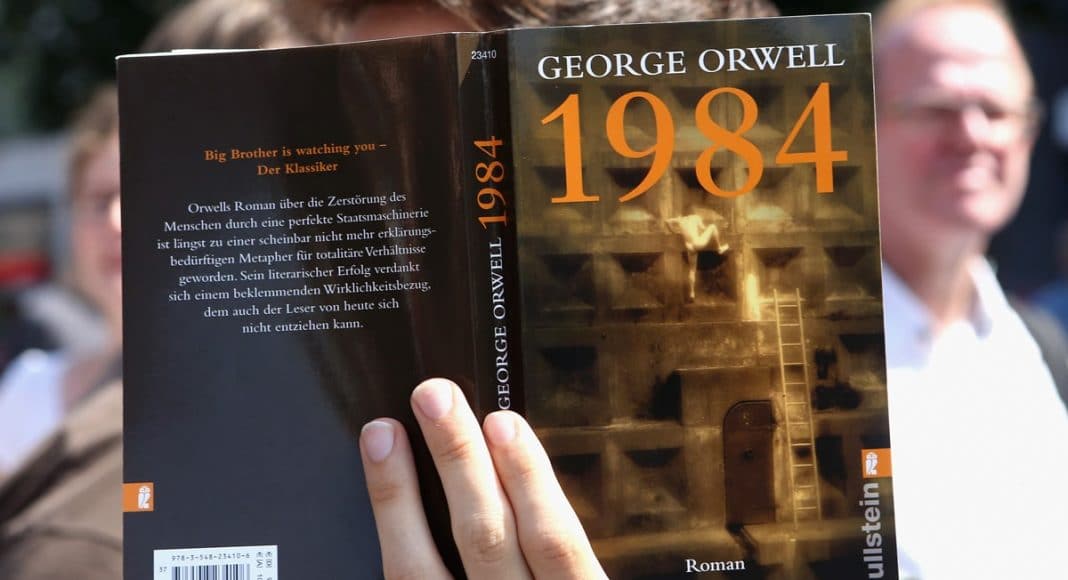When novelists write dystopian literature, their sentences both hint at and exaggerate a state of their current reality. In some cases, they are a what if? played out, extending trends these writers fear might spell doom. But what happens when those fictional nightmares seemingly become current reality?
Kellyanne Conway, an adviser to President Donald Trump, reflected that possibility after offering the distinction of “alternative facts.” Conway uttered this phrase when questioned regarding Trump’s record attendance numbers at his inauguration.
-
RELATED STORY: “How Will Jeff Sessions Act On Legal Marijuana?”
The idea of “alternative facts,” it seems, reminds many of George Orwell’s classic 1984, which has sits atop Amazon’s bestseller list following Trump’s inauguration and Conway’s phrasing. 1984 features “newspeak,” a type of propaganda that clouds facts and distorts any sense of foundational truth through mixed messaging and overwhelming surveillance.
We put through a 75,000 copy reprint this week. That is a substantial reprint and larger than our typical reprint for 1984,” a Penguin spokesman told CNNMoney Tuesday evening.
[…]
According to Nielsen BookScan, which measures most but not all book sales in the United States, “1984” sold 47,000 copies in print since Election Day in November. That is up from 36,000 copies over the same period the prior year.
From George Orwell's "1984." why there evolves in Oceania,
"an unwearying, moment-to-moment flexibility in the treatment of facts" pic.twitter.com/NAC7fpZtyI— Michiko Kakutani (@michikokakutani) January 25, 2017
Two other editions of 1984 are in the bestseller list, though Orwell is not the only author whose work has seen a recent resurgence. Aldous Huxley’s Brave New World, another dystopic society where truth is obscured, and Upton Sinclair’s It Can’t Happen Here, which involves the election of an authoritarian president, have entered the top 100 of Amazon’s bestseller list.
Other novels to jump into the bestseller list since Trump’s inauguration: Orwell’s Animal Farm, Ray Bradbury’s Fahrenheit 451, Margaret Atwood’s The Handmaid’s Tale, and Hannah Arendt’s The Origins of Totalitarianism.


